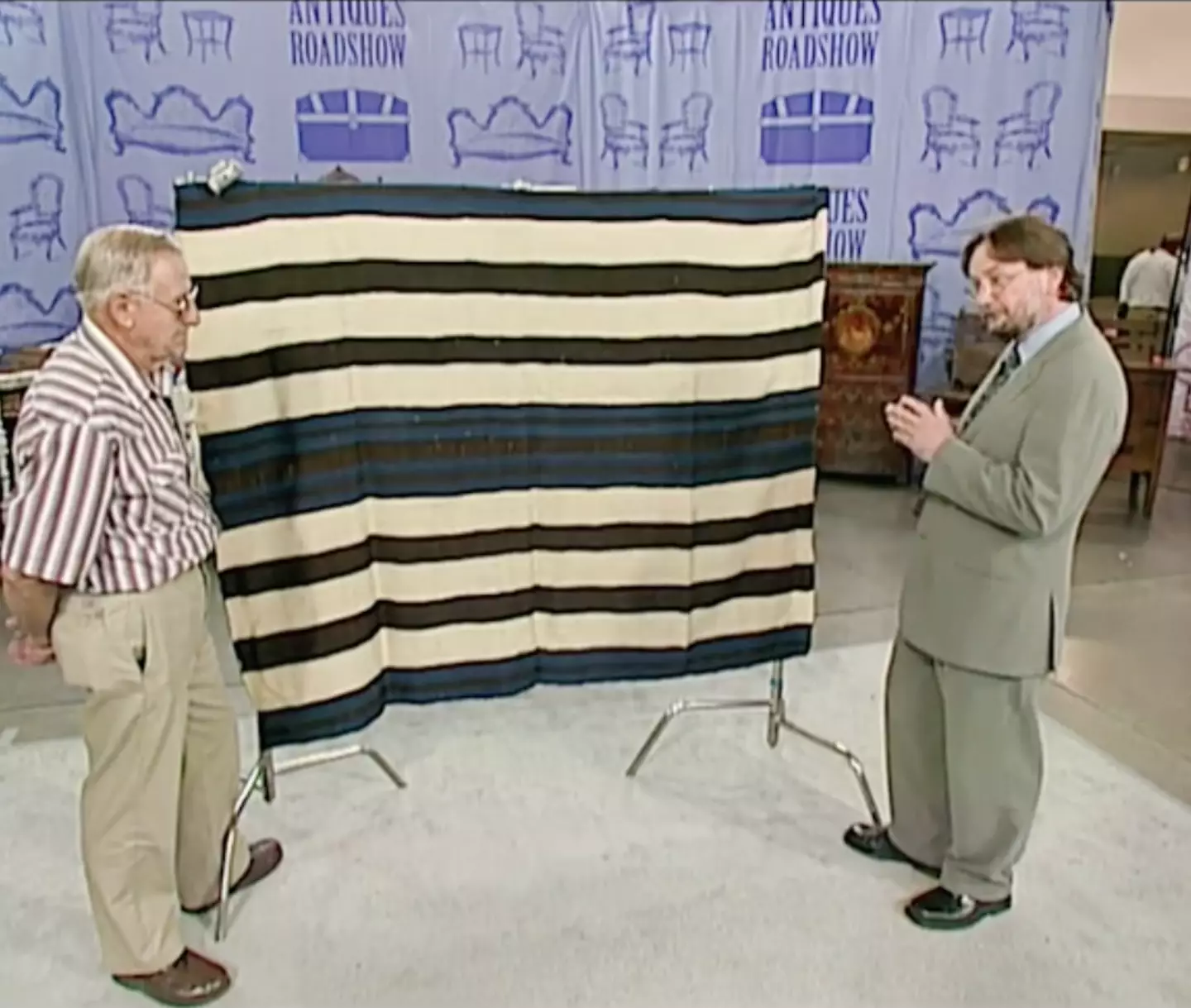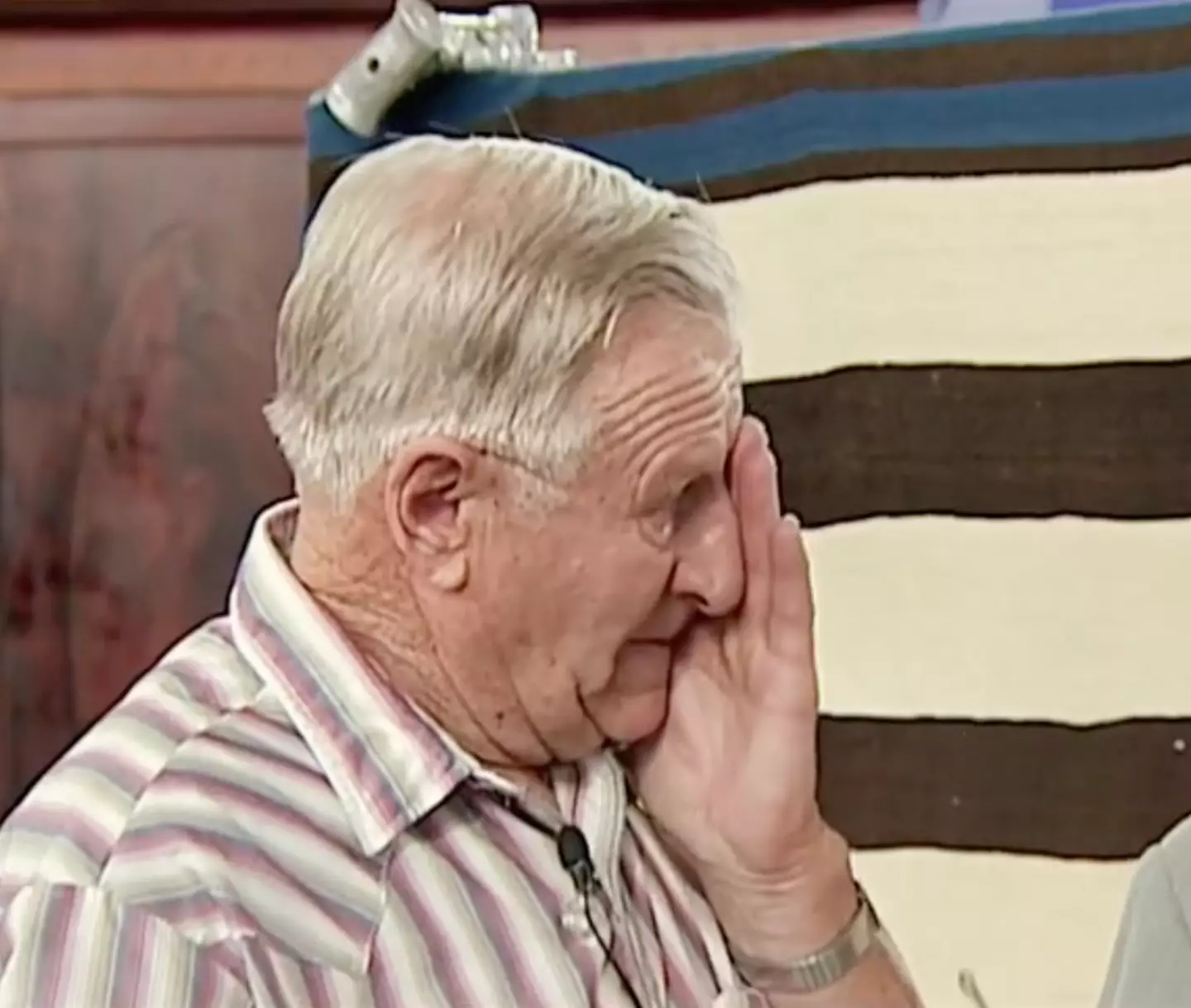A man was moved to tears on Antiques Roadshow after discovering the financial value of something he brought in.
In situations like this, it's often the seemingly innocuous things which command astonishing prices, with the owners having no idea that something they've had lying around their house could be worth a mint.
One guest, Ted Kuntz, on PBS's Antiques Roadshow, found this to his astonishment after bringing in an extraordinary object to be appraised.
Advert
Expert, Donald Ellis, could barely contain his excitement as he explained the provenance of a blanket which the man had brought on.

Kuntz said that the blanket had been 'over the back of a chair' for some time, and he had no idea if it was worth any significant amount of money.
Ellis said: "Did you notice when you showed this to me I kind of stopped breathing a little bit?
"Do you have a sense at all of what you're looking at here? Are you a wealthy man? Well sir, I'm still a little nervous here. On a really bad day, this textile would be worth $350,000. On a good day it's about half a million dollars."
An astonished Kuntz said: "I had no idea! It was laying on the back of a chair!"
"Sir, you have a national treasure. When you walked in with this I just about died. Congratulations."
The blanket was a Navajo Ute blanket, dating from around the 1850s. Kuntz claimed that the blanket had been given by frontiersman, Kit Carson, to his grandmother's foster father.
Ellis said: "The value of this that I'm giving is not using the Kit Carson provenance. Provenance is difficult to ascertain. If we could do research on this and we could prove without a reasonable doubt that Kit Carson did actually own this, the value would increase again."
Kit Carson was a famous frontiersman in his lifetime. However, there is also a dark connection between Carson and the Navajo community.
In 1864, Carson oversaw the systematic rounding up of Navajo communities in their ancestral lands around what is now Arizona. He was ordered to receive the Navajo surrender and to move them to a reservation. When no Navajo showed up, Carson began a scorched earth campaign, aiming to starve the indigenous community into submission.

After the Navajo community eventually surrendered, Carson then put them on a forced march from Arizona to the reservation in New Mexico, on which around 200 died. The march has since become known as 'The Long Walk of the Navajo', and is considered to have been an act of ethnic cleansing.
In a later episode of Antiques Roadshow, Kuntz explained what happened after the appraisal. He said: "I knew we couldn't afford to keep it, and it would be better served to be someplace where it could be preserved properly."
After several years the blanket was sold for around $450,000 to an anonymous buyer, who donated it to the Detroit Institute of Arts. Kuntz use the money to pay off the mortgage on his house, but didn't retire until he was 74.
Topics: TV and Film, News, US News
